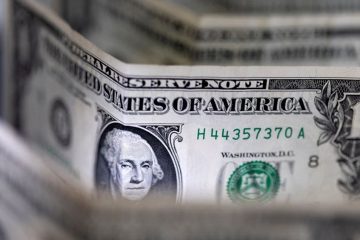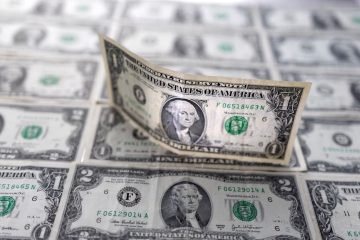| Symbol | Last | Change | % | High | Low |
|---|---|---|---|---|---|
| USD / ZAR | 16.494 | +0.405 | +2.52% | 16.756 | 16.055 |
| Open Last Trade : 21:00 | GMT Time : Tue Mar 03 2026 21:00 | ||||
USD/ZAR : Intraday Live Chart
USD/ZAR : Technical Signal Buy & Sell
| 5 Min Signal | 1 Hour Signal | 1 Day Signal |
|---|---|---|
| Sell | Buy | Sell |
USD/ZAR : Moving Averages
| Period | MA 20 | MA 50 | MA 100 |
|---|---|---|---|
| 5 Minutes | 16.48 | 16.53 | 16.53 |
| 1 Hour | 16.33 | 16.18 | 16.05 |
| 1 Day | 15.98 | 16.09 | 16.45 |
| 1 Week | 16.67 | 17.42 | 17.91 |
USD/ZAR : Technical Resistance Level
| Resistance 1 - R1 | Resistance 2 - R2 | Resistance 3 - r3 |
|---|---|---|
| 16.128 | 16.150 | 16.161 |
USD/ZAR : Technical Support Level
| Support 1 - S1 | Support 2 - S2 | Support 3 - S3 |
|---|---|---|
| 16.094 | 16.083 | 16.060 |
USD/ZAR : Periodical High, Low & Average
| Period | High Change from Last | Low Change from Last | Average Change from Last |
|---|---|---|---|
| 1 Week | 16.116 +0.378 | 0.000 +16.494 | 15.960 +0.534 |
| 1 Month | 16.305 +0.189 | 0.000 +16.494 | 15.995 +0.499 |
| 3 Month | 17.051 -0.557 | 0.000 +16.494 | 16.348 +0.146 |
| 6 Month | 17.794 -1.301 | 0.000 +16.494 | 16.825 -0.331 |
| 1 Year | 19.795 -3.301 | 0.000 +16.494 | 17.319 -0.825 |
USD/ZAR : Historical Chart
USD to ZAR Exchange Rate History: Tracing South Africa’s Economic Highs, Crises, and Global Sensitivity
The USD to ZAR exchange rate reflects the complex interplay between South Africa’s political evolution, commodity cycles, global risk appetite, and domestic monetary policy. As a commodity-linked currency, the South African rand (ZAR) has shown heightened sensitivity to external shocks, interest rate differentials, and capital flows.
Once one of the strongest currencies globally, the rand has undergone sharp depreciation cycles, currency reforms, and political-institutional challenges—mirroring the country’s post-apartheid economic journey and struggle with inequality, inflation, and fiscal discipline.
1970s–1980s: From Strength to Early Weakness
In the 1970s, the South African rand was among the strongest global currencies, with 1 USD trading around 0.70 to 1.00 ZAR. Strong gold exports and capital controls supported the exchange rate despite apartheid-related sanctions.
However, by the 1980s, rising isolation, sanctions, capital flight, and internal unrest began weakening the rand. The USD/ZAR rate rose to around 2.00–2.50 by the late 1980s, driven by falling investor confidence, debt accumulation, and reduced trade access.
1990s: Post-Apartheid Transition and Currency Volatility
With the end of apartheid in 1994, South Africa entered a period of hope—but also currency uncertainty. The rand became fully convertible, opening it to speculative flows and volatility.
Throughout the 1990s, the USD/ZAR pair moved from 2.60 in 1990 to over 6.00 by 1999, reflecting external liberalization, EM contagion (especially post-1997 Asia crisis), and inflationary concerns. The rand was deeply affected by global risk sentiment and the 1998 emerging markets sell-off.
2000s: Commodity Boom and Structural Fragility
The early 2000s began with another currency crisis, as the rand fell sharply to over 13.00 per USD in late 2001. Weak fundamentals, twin deficits, and speculative attacks forced the South African Reserve Bank (SARB) to intervene.
From 2002 to 2007, however, the commodity supercycle, rising gold/platinum prices, and strong Chinese demand supported the ZAR. The exchange rate appreciated to under 7.00 per USD by 2006–2007.
The 2008 global financial crisis hit South Africa hard, causing the ZAR to weaken rapidly to 10.00, but it rebounded as risk appetite returned post-2009.
2010s: Political Risk and Rand Deterioration
The 2010s saw sluggish growth, electricity shortages (Eskom crisis), rising debt, and political instability under President Zuma. Despite a stable central bank, investor confidence waned.
The USD/ZAR rate ranged from 6.50 in 2010 to over 15.00 by 2016, triggered by multiple credit downgrades, fiscal slippage, and weak GDP performance. Corruption scandals and “state capture” accelerated foreign capital flight.
While the rand attempted rebounds under President Ramaphosa (post-2018), structural reforms were slow, and ZAR remained volatile. By 2019, the USD/ZAR pair hovered around 14.00–15.00.
2020–2024: Pandemic Shocks and Inflation Pressures
In 2020, COVID-19 caused a global sell-off, and ZAR collapsed to 19.00 per USD, its weakest ever. But South Africa’s high real interest rates and commodity export strength helped stabilize the currency through 2021–2022.
By mid-2022, USD/ZAR traded between 14.50 and 17.50, but ongoing load shedding, fiscal weakness, and global interest rate hikes pressured the rand.
As of April 2025, the USD/ZAR pair stands near 18.40, reflecting persistent macro vulnerabilities, limited structural reforms, and a strong USD environment.
✅ Key:
🟢 = Rand appreciated vs USD
❌ = Rand depreciated vs USD
⚠️ = Range-bound or minimal movement
📊 USD to ZAR Exchange Rate by Decade
| Decade | Avg. USD/ZAR Rate (Approx) | Change vs. Previous Decade | Key Events |
|---|---|---|---|
| 1970s | 0.70 → 1.00 | ❌ -30% depreciation | Peg system, apartheid era begins, sanctions loom |
| 1980s | 1.00 → 2.50 | ❌ -60% depreciation | Sanctions, capital flight, political instability |
| 1990s | 2.60 → 6.00 | ❌ -57% depreciation | Apartheid ends, rand liberalized, Asia crisis fallout |
| 2000s | 6.00 → 10.00 (peak 13.00) | ❌ -40% depreciation | Commodity boom, rand crisis 2001, GFC rebound |
| 2010s | 6.50 → 15.00 | ❌ -56% depreciation | Zuma era, corruption, Eskom crisis, credit downgrades |
| 2020s (till 2025) | 15.00 → 18.40 | ❌ -23% depreciation | COVID-19 shock, load shedding, fiscal pressures, strong USD |
The USD to ZAR exchange rate remains a key proxy for South Africa’s macroeconomic trajectory and exposure to global sentiment. The rand continues to reflect a mix of local fragility and external dependencies, making it one of the most traded and speculative EM currencies in the world.
USD/ZAR - US Dollar / South African Rand Currency Rate
Live Price of USD/ZAR. USD/ZAR Live Chart, Intraday & Historical Live Chart, Buy Sell Signal, USD/ZAR News, USD/ZAR Averages, Returns & Historical Data
» USD/ZAR
» USD/ZAR Real Time Quotes
» USD/ZAR Live Chart
» USD/ZAR Intraday Chart
» USD/ZAR Historical Chart
» USD/ZAR Buy Sell Signal
» USD/ZAR News
» USD/ZAR Videos
» USD/ZAR Averages
» USD/ZAR Currency Pair
» USD/ZAR Historical Data









